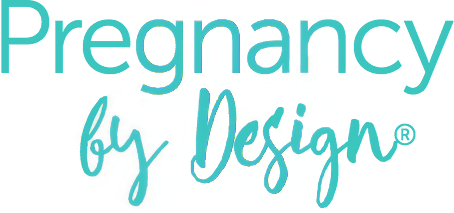When Should I Take Prenatal Vitamins and Minerals?
Ideally, you start taking prenatal vitamins before you conceive. Get those daily vitamins and levels of essential nutrients up so baby has access to the nutrients (and your body is stronger) when pregnant. Some vitamins and dietary supplements, like B6, may reduce your experience of morning sickness! Take your vitamins throughout your pregnancy and continue while breastfeeding. Ask your health care provider about special circumstances or if you feel you need something different.
Which Prenatal Vitamins are the Best?
There are many excellent brands of high quality prenatal multivitamins. There are also many very low quality brands. The best are food-based and tested by a third party. Ask your provider for recommendations, read the labels, the reviews, and choose one. They come in dairy free, gluten free, and gummy vitamins! You can always switch brands.
Look for a Multi That Includes These Essential Vitamins and Key Nutrients:
Folic Acid or Folate
A B vitamin that helps to prevent neural tube defects such as abnormalities of the brain and spinal cord. Current dietary guidelines recommend that pregnant women take at least 600 mcg per day from all sources.
Foods that Supply Folate:
- Leafy green vegetables
- Lentils and beans
- Orange juice
One important thing to think about when choosing a prenatal vitamin or supplement is the source of folic acid. Folic acid is the synthetic form while l-methylfolate is the bioavailable form. This is important because between 40-60% of the population have genetic mutations that prevent the body from converting the supplemental form of folic acid to the active form (l-methylfolate). In short, the best option may be to find a supplement or prenatal with l-methlyfolate to avoid folate deficiencies.
Calcium
A mineral that helps build your and your baby’s bones and teeth. This important mineral also helps to develop your baby’s heart, muscles and nerves. If you aren’t getting enough calcium during pregnancy, your body will pull calcium from your bones and supply it to your baby – so make sure your daily intake of calcium is 1,000 mg.
Foods that Supply Calcium:
- Milk, cheese and yogurt
- Broccoli or dark leafy greens such as spinach or kale
- Seeds (chia, poppy, sesame)
- Almonds
Choline
An essential nutrient that helps your baby’s brain and spinal cord to develop normally and reduces the incidence of birth defects. Many prenatal vitamins only contain between 0-55mg when the AMA recommends a daily intake of 450 mg per day. According to the National Institutes of Health (NIH) Approximately 90%–95% of pregnant women consume less choline than the acceptable daily intake. Adding foods with choline is essential to reach the daily recommended value.
Foods that Supply Choline:
- Beef liver
- Whole Eggs
- Grass Fed Beef
- Fish (cod)
- Shitake Mushrooms
- Potatoes (red)
- Kidney beans
- Milk
- Yogurt
- Quinoa
- Brussel Sprouts
- Broccoli
- Peanut Butter
- Cauliflower
Vitamins A,B,C,D,E
Vitamin A
This vitamin supports visual health, immune function and fetal growth. The current dietary guidelines are 770 mcg per day – daily max is 100 mcg.
Foods that supply VItamin A:
- Milk
- Eggs
- Carrots
- LIver
- Spinach
- Potatoes
- Pumpkin
- Yellow fruits
Vitamin B (B Complex)
These vitamins (specifically B6 and B12) are very important during pregnancy. They not only work to reduce the likelihood of birth defects but they can also help to reduce pregnancy symptoms. For instance Vitamin B6 has been found to reduce nausea experienced from morning sickness. The common schedule of taking vitamin B6 for morning sickness is 10 mg to 25 mg, 3 times a day. Do not take more than 100 mg a day of vitamin B6 because it can cause temporary nerve damage. Talk to your healthcare provider before taking vitamin B6 for morning sickness.
The daily recommendation for B6 is 1.9 mg and 2.6 mcg for B12.
Foods that supply Vitamin B6:
- Garlic
- Beans
- Sweet Potatoes
- Carrots
- Avocados
- Sunflower Seeds
- Brown Rice, Oats
- Spinach
- Bananas
- Papayas
- Chicken
- Pork
- Wild Salmon
- Grass-fed beef
Foods that supply Vitamin B12
- Eggs
- Liver
- Pork
- Dairy
- Eggs
- Beef
- Poultry
- Fish & Shellfish
Vitamin C
An antioxidant that builds a healthy immune system and helps to protect tissue from damage. It also helps the body to synthesize collagen and absorb iron and folate. The current dietary guidelines are 80-85 mg per day and a max of 2000 mg per day.
Foods that supply Vitamin C:
- Citrus (oranges, lemons, grapefruit)
- Strawberries
- Peppers
- Broccoli
- Tomatoes
- Green beans
Vitamin D
Supports immune function, healthy cell division and bone health. This important vitamin also helps your body absorb calcium and phosphorus. Vitamin D helps your baby’s teeth and bones to grow. The current dietary guidelines recommend 600 IU per day but new research has shown that pregnant women benefit from and can safely take this vitamin in higher amounts. The daily max is 4000 IU. More on this in the next section.
Foods that supply Vitamin D:
- Fatty fish like tuna or salmon (wild caught contains higher amounts)
- Shrimp
- Egg yolks
- Mushrooms
- Fortified foods (cow’s milk, soy milk, orange juice, cereal)
Vitamin E
An antioxidant which works together with Vitamin C to prevent an excess of free radicals which cause damage to cells. Vitamin E also helps to form red blood cells and muscles. The daily recommendation is 15 mg per day and a max of 1000 mg per day.
Foods that Supply E:
- Wheat germ oil
- Nuts (Almonds, Peanuts)
- Sunflower seeds
- Spinach
- Avocado
- Rainbow trout
Iron
A mineral that helps your red blood cells make a protein (known as hemoglobin) which carries oxygen to your organs and tissues. It can also help to prevent anemia (when your blood lacks enough healthy red blood cells). And iron supports your baby’s development and growth. During pregnancy you need 27 mg of iron per day – about twice as much than you did before you were pregnant. Most prenatal vitamins have enough iron but you can also get extra iron from food. Your pregnancy provider will test your blood for iron deficiency anemia and may prescribe an iron supplement if needed.
Foods that Supply Iron:
- Lean meats and poultry
- Seafood
- Fortified foods (breads, cereals and pastas)
- Leafy green vegetables like spinach
- Beans
- Nuts
To increase the absorption of iron from plant sources and supplements, pair them with a food high in vitamin C such as strawberries.
Zinc
An important mineral that helps maintain a healthy immune system, balance hormones, and aid in production of the placenta. Zinc also boosts your baby’s cell growth, DNA production and provides support to proteins that make up baby’s cells. A deficiency in zinc can lead to low birth weight and even malformations. 13 mg is suggested for pregnant women who are under 18 years old and 11 mg is suggested for pregnant women 18 years old and above.
Foods that Supply Zinc:
- Dark chocolate
- Pumpkin seeds
- Yogurt
- Lentils
- Cashews
- Lamb or Beef
Iodine
An essential mineral that helps develop your baby’s brain and nervous system (brain, spinal cord and nerves) during pregnancy. During pregnancy, your iodine needs increase greatly. Most foods contain little iodine so supplementation is important. The daily recommendation during pregnancy is 220 mcg per day.
Foods that Contain Iodine:
- Seaweed
- Cod
- Shrimp
- Tuna
- Eggs
- Prunes
- Iodized salt
Copper
Support blood health and also helps your body to absorb iron.
Foods the Contain Copper:
- Brazil nuts
- cocoa or chocolate (aim for a chocolate bar that is at least 70% cacao)
- Beef or lamb liver
- Blackstrap molasses
- Oysters
- Black pepper
What Additional Supplements Do I Need for a Healthy Pregnancy?
Omega-3
In addition to a prenatal multivitamin that your provider recommends, it’s a good idea to take an omega-3 supplement (also known as DHA supplements or docosahexaenoic acid). Omega-3 fatty acid has a role in baby’s brain development and most modern diets are deficient. Fish oil supplements can be found anywhere. Salmon oil is a good choice, especially wild-caught. One tip for avoiding the unpleasant side effect of burping up the fish oil (not so pleasant) is to keep the capsules in your freezer – just don’t forget about it in there! Posting a reminder on your refrigerator or setting an alarm on your phone may help.
Calcium, Magnesium & Potassium
Calcium, magnesium, and potassium are also important and you may find that a quality supplement will relieve leg cramps, constipation, even stress. You can also get these minerals from food. Potassium is especially beneficial when synthesized from food.
Vitamin D
Vitamin D. Many of us are deficient in vitamin D. Consider more time in the sun (try to get 10-15 minutes of sun on your arms, legs, abdomen and face 3 times per week) and a nice, easy liquid D supplement–one or two drops a day! It’s very unlikely that your prenatal vitamin is providing you with enough Vitamin D (most only provide 400 IU’s). In a double-blind, randomized clinical trial by the National Institute of Health it was found that in a diverse group of pregnant women who took 4,000 IU’s of vitamin D each day received the greatest benefits in the prevention of preterm labor and birth, and infections. The trial confirmed that vitamin D at higher levels is safe for pregnant women and their babies. Be sure to have your vitamin D levels checked to see if you are deficient.
Probiotics, some formulated just for pregnant women, may help build the good bacteria in preparation for birth and alleviate digestive problems.
Can’t I Get My Vitamins from Food?
Yes and no. Eating a healthy diet consisting of whole foods rich in vegetables, fruits, nuts, seeds, meats, and other foods you can identify to get most of your nutrients. It’s difficult to get enough of some of the nutrients without supplements because of how depleted our soils are from over-farming. So while you can eat more fish to get your Omega-3 fatty acid intake and eat bananas for your potassium, getting in the optimal level of all nutrients is difficult. Supplements carry some of that burden and guesswork for you.
What Are the Side Effects of Taking Prenatals?
Some people feel nauseous after taking prenatals because of the high iron content. Don’t take them on a empty stomach, and try taking them with a little snack before bed.
If you become constipated, drink more water, try more fiber, and move around more. You can also try a different multivitamin that is easier on the gut.
Don’t take more than the recommended dose unless your provider suggests it. It’s possible to do damage with large amounts of synthetic vitamins (another reason to eat nutrient-rich whole foods to get your body’s needs met!).
Do I Need a Special Prenatal Vitamin?
Most prenatal vitamins contain higher concentrations of folic acid and iron. Folic acid or Folate pre-pregnancy and in the first trimester helps prevent neural tube defects, which cause serious spinal cord or brain problems.
Iron helps prevent anemia in pregnancy. When anemic, your blood doesn’t have enough healthy red blood cells. Unborn babies also need iron to grow.
If you’re not anemic and you get plenty of folic acid from elsewhere, talk to your midwife or doctor about taking a regular multivitamin–or no vitamins!
Special circumstances sometimes lead doctors and midwives to prescribe vitamins that are prescription only. Some prenatals have extra high doses of folic acid which may help some people at risk of miscarriage. There are also chewable–or easier to swallow–prescription vitamins if you have trouble taking pills. If you’re having trouble finding a Kosher prenatal vitamin, there’s a prescription for that, too. For the most part, prescription vitamins are the same as over the counter vitamins, but some people like the extra FDA scrutiny of the prescription ones.
Disclaimer: Pregnancy by Design’s information is not a substitute for professional medical advice or treatment. Always ask your healthcare provider about any health concerns you may have.
Cited Research
ACOG (2018). Nutrition During Pregnancy. Retrieved from https://www.acog.org/Patients/FAQs/Nutrition-During-Pregnancy?IsMobileSet=false#and
AMA Wire (2017). AMA backs global health experts in calling infertility a disease. Retrieved from https://wire.ama-assn.org/ama-news/ama-backs-global-health-experts-calling-infertility-disease
Hollis, B. W., Johnson, D., Hulsey, T. C., Ebeling, M., & Wagner, C. L. (2011). Vitamin D supplementation during pregnancy: double-blind, randomized clinical trial of safety and effectiveness. Journal of bone and mineral research : the official journal of the American Society for Bone and Mineral Research, 26(10), 2341-57. Retrieved from https://onlinelibrary.wiley.com/doi/full/10.1002/jbmr.463.
Greenberg JA, Bell SJ. Multivitamin Supplementation During Pregnancy: Emphasis on Folic Acid and l-Methylfolate. Rev Obstet Gynecol. 2011;4(3-4):126-7. Retrieved from https://www.ncbi.nlm.nih.gov/pmc/articles/PMC3250974/
Michigan Medicine: University of Michigan (2018). Vitamin B6 for Morning Sickness. Retrieved from https://www.uofmhealth.org/health-library/tn9126
March of Dimes (2018). Vitamins and Other Nutrients During Pregnancy. Retrieved from https://www.marchofdimes.org/pregnancy/vitamins-and-other-nutrients-during-pregnancy.aspx.
U.S. Department of Health & Human Services. National Institutes of Health (2018). Choline Fact Sheet For Health Professionals. Retrieved from https://ods.od.nih.gov/factsheets/Choline-HealthProfessional/.



 What is a Doula? And Why You Need One At Your Birth
What is a Doula? And Why You Need One At Your Birth





Leave a Reply